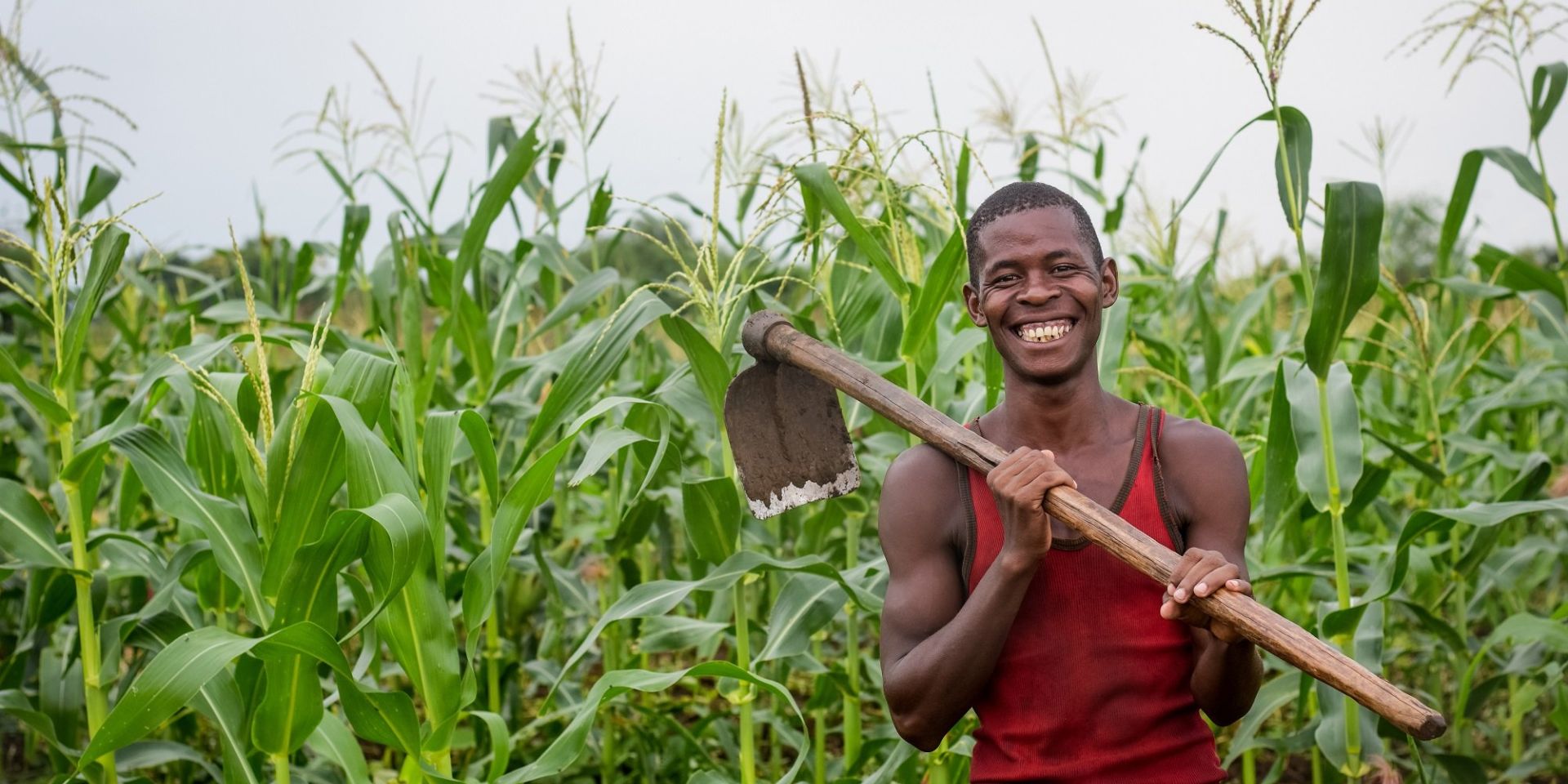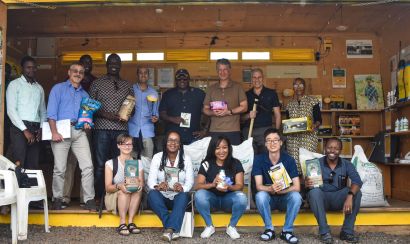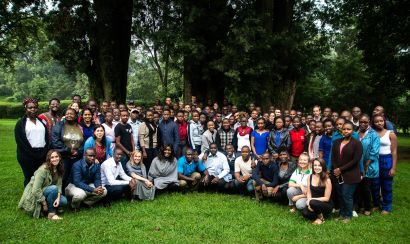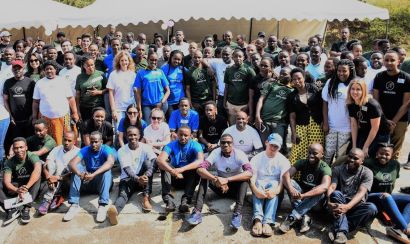Letter From Andrew Youn: One Million Farmers Served
I am very excited to announce that One Acre Fund is directly serving one million families each year! In addition, we are reaching another one million families annually in collaboration with partners in government and the private sector. We are so proud to help the powerful farmers we serve earn a better future for their families.
Why Farmers?
At One Acre Fund, we always ground ourselves with the motto: “Farmers First.” Farmers stand at the center of three of humanity’s greatest challenges: poverty, hunger, and the environment.
- Poverty: The majority of people living on $1 a day are farmers, and so when farmers become more productive, mass numbers of people move out of poverty.
- Hunger: The product of farming is food, and so when farmers become more productive, they feed their communities.
- Environment: The world will feed itself either by clear-cutting forests and savannahs to make more farmland (an environmental disaster), or by making its existing land more productive.
Just one profession predominates throughout rural Africa: farming. Making this one profession more productive is a powerful lever for addressing these three challenges and helping millions of families achieve a path to prosperity.
Farming is also surprisingly concentrated in Sub-Saharan Africa, making this opportunity more tractable: the majority of Africa’s smallholder farmers live in just 8 countries. Burundi, Kenya, Malawi, Rwanda, Tanzania, and Uganda are six where One Acre Fund is now active. The seventh is Ethiopia, where we’ve begun a promising partnership with the government; the eighth is Nigeria, where we are piloting our program.
In the coming six years, we hope to help farmers earn more than $2 billion of cumulative new profits and assets — reaching about one quarter of farmers in Africa’s eight critical countries. What does $2 billion dollars of impact mean in human terms? I’d like to introduce the Kanyao Group in Kenya, one of a handful of farmer groups whose enrollment pushed us over the million farmer milestone.
Reflections on 1 Million Farmers Served
In our journey to one million, we have gotten some things right, and many things wrong, along the way. Here are three lessons that stand out.
- Put Farmers First. One thing we got right is our consistent focus on our customers. Nearly all of us live in rural areas, near the families we serve, and spending time in the field is a key element of our culture. We constantly interact with farmers and gather data on our service delivery.There is no substitute for listening directly to our customers. There have also been times when we have failed to deliver what farmers truly want. It took us eight years to figure out how to meet farmer demand for tree planting. We also have struggled as of late to keep up with climate shocks, like drought, and are working hard to diversify our crop offerings beyond maize. As we grow, we have to be extra intentional about getting farmer feedback early and pivoting quickly to make sure we’re always in sync with our customers’ needs.
- Invest in People. I have always believed that People determine our long-term success. Since day one, we’ve been laser focused on hiring, retaining, and developing a talented team, in the effort to best serve our clients. As we plan to grow from nearly 8,000 staff today to an estimated 25,000 staff by 2030, developing world-class talent remains one of our top focus areas.At the same time, we made some early mistakes in our approach to hiring, and are deeply invested in building a more diverse and inclusive team that will guide us through our next phase of growth. Diverse teams make better decisions, and they create better end-outcomes for the people we serve. I’m passionate about developing the rising leaders in our ranks, and in the coming years I fully expect our senior leadership to better reflect the communities we serve.
- Instill Individual Ownership. The last thing has served us well is that we hope each and every team member feels a sense of ownership over producing end-results. From the start, we set the tone that our staff are always to “own” their work, not just do it (sorry Nike!). We rely on established processes, but we don’t just follow instructions. We take personal responsibility for seeing our work through to the end result, and for making our work better for next season.This was easy in the early years. We each had to fully own our work in order to make progress. Today, as a bigger organization with specialized functions, it can feel harder to be an owner. So we’re reaffirming this element of our culture this year as fuel for our future growth. Without this deeply embedded sense of ownership, we never would have innovated or grown as quickly.
Looking Ahead to 10 Million Farmers Served
1 million farmers is a milestone worth celebrating, but I don’t see this as an end achievement of itself. Instead, it’s a foundation from which to build. We are just getting started.
So, where do we go from here? I think I speak for our whole team when I say that we are only getting started. The greatest risk we run is to not be bold enough in envisioning what is possible.
By 2030, we have set an ambitious new goal to serve approximately 10 million families each year—roughly four million through our full-service program, and another six million through partnerships with governments and the private sector.
One million farm families is a milestone to be celebrated, and there are many lessons learned along the way. But this is not an end-point—it is merely a beginning. Looking ahead, it is important that we continue to dream big, and set as ambitious goals as possible, inspired by the families that we serve.





